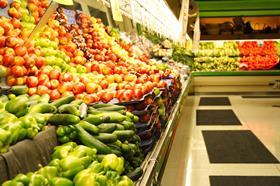
Freshfel Europe has expressed concerns over the increasing financial burden being carried by the European fresh fruit and vegetable sector as a result of the coronavirus crisis.
Increasing costs associated with the implementation of necessary measures across the supply chain to cope with the Covid-19 pandemic, as well as current and future non-harvesting of products if seasonal workers are not available, are set to have 'considerable ramifications' for the long-term stability of the sector, the association said.
As a result, Freshfel called for new support measures to secure the supply of fresh produce to consumers over the coming summer months and into the latter half of 2020 and beyond.
Despite providing an uninterrupted supply of fresh, safe and high quality fresh produce to consumers throughout the Covid-19 pandemic so far, the European fresh fruit and vegetable sector is facing significant challenges.
Although the sector is well organised and committed to its responsibility to provide fresh produce to consumers confined at home the effects of the pandemic are being felt by all actors in the supply chain.
'The availability of seasonal workers is still insufficient in many places,' Freshfel highlighted. 'This workforce is key for planting, preparing orchards, preventing non-harvesting and picking quality products now and later in the year.
'Efficiency in orchards and packhouses has decreased due to social distancing rules and with the provision of safety equipment and new packing requirements other challenges are being encountered. Growers in particular are being confronted with a significant increase of new necessary costs, often by more than 10 per cent, which are not being entirely returned or compensated.'
Logistics costs in the chain have also increased by 20-30 per cent, Freshfel continued, due to empty returns of trucks and longer journey times.
Besides this, significant market loss is being experienced with the closure of the European food service industry and street markets, with wholesalers consequently also losing a significant amount of business. In total this market segment covers 25 per cent of fresh produce consumption and retail chains are not absorbing all of this volume, the association said.
Retailers have also had to adapt stores with personal safety measures such as flexi-glass at cashiers and limiting shopper numbers in store.
In addition, risks for products to be successfully exported globally are increasing and importers are experiencing high uncertainty in terms of delivery and time required for documentation checks.
This increasing burden on the supply chain is set to have considerable ramifications for the long-term stability of the sector, Freshfel warned.
'In light of mounting uncertainty about the future of the sector, Freshfel Europe calls for continued and new support measures to secure the supply of fresh fruit and vegetables to consumers over the coming summer months and into the latter half of 2020,' the association said. 'At the start of April the European Commission secured an operation framework for intra-EU trade and measures for seasonal workers, however no further support has been granted under the Common Agricultural Policy (CAP) to producers and producer groups to reflect current increasing costs to guarantee the continued supply of fresh, safe and high quality products to consumers.
'More incentives through CAP instruments on top of those released by the European Commission on 6 April 2020 are needed for the sector, especially for growers, to cope with the current financial pressure. As an essential good, maintaining the long-term supply of healthy fresh fruit and vegetables to the European market is essential.'



